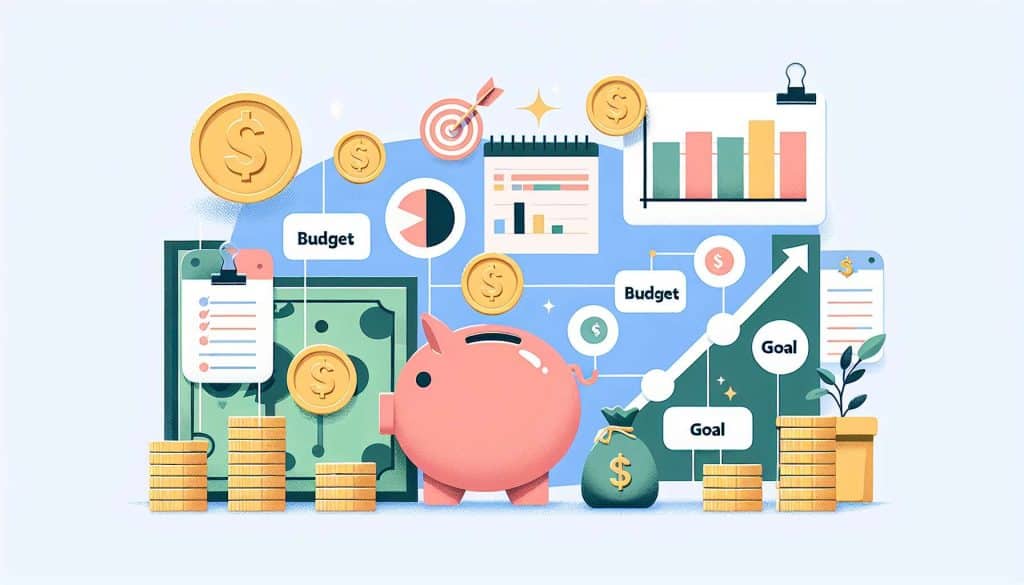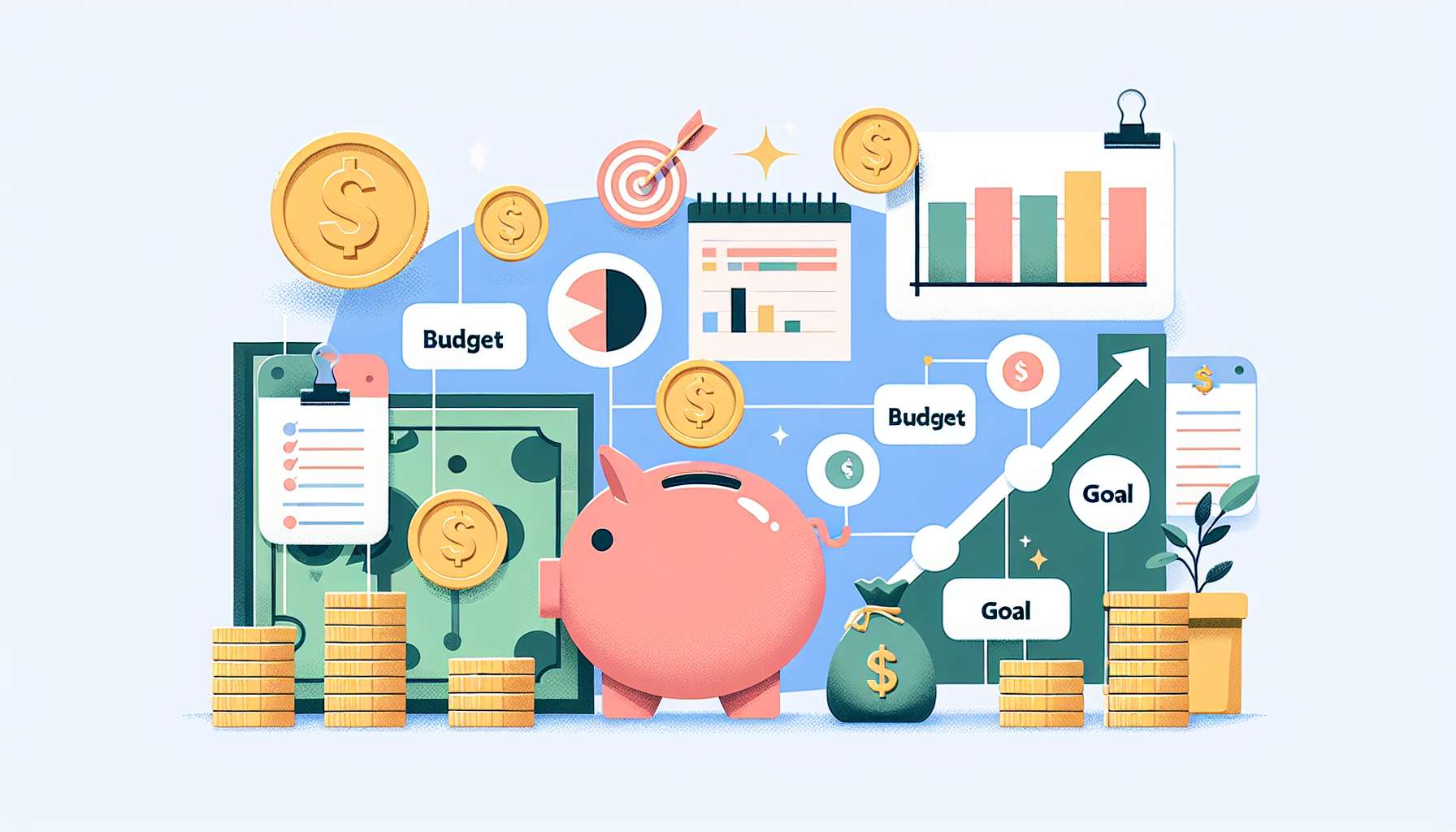Easy Budgeting: Master Personal Finance & Achieve Your Financial Goals


Understanding Personal Budgeting: A Guide to Financial Success
In our rapidly evolving world, financial security stands as a vital component of well-being. Personal budgeting isn’t just about limiting expenditures, but about crafting a roadmap to financial success. While many grapple with maintaining a budget, mastering effective financial management can significantly reduce stress and foster financial achievement. This guide breaks down personal budgeting essentials, offering straightforward steps and insights for financial empowerment.
Anúncios
Personal budgeting is often misunderstood as restrictive, yet it serves as a powerful tool for financial empowerment. A carefully structured budget prioritizes spending, enables savings for future goals, and helps avoid unnecessary debt. A budget offers clarity about your financial status, facilitating sound decision-making and ensuring peace of mind. Embracing personal budgeting ensures your money serves you, putting you in control at every step.
Commencing the journey of personal budgeting begins with understanding your financial flows. Identifying income sources—wages, freelance earnings, investment returns—is the foundation. Equally vital is tracking expenditures, categorizing them into fixed costs, like rent, and variable costs, such as groceries. This comprehensive financial mapping illuminates spending patterns, providing a solid base for budget creation. With these insights, crafting a savvy financial plan becomes more attainable.
A Guide to Navigating Personal Budgeting
Setting financial goals is pivotal to bringing purpose to your budget. Aiming for something tangible like a vacation, debt payoff, or an emergency fund gives structure to the budgeting process. Clearly defined short-term and long-term goals—immediate tasks versus future savings goals, like retirement or education—can direct the budgeting journey. Specific targets transform your abstract financial aspirations into actionable steps, leading to greater financial accomplishments.
Having mapped out income, expenses, and goals, crafting the budget follows. Opt for a budgeting method that aligns best with your lifestyle. The 50/30/20 rule, advocating for spending 50% on needs, 30% on wants, and 20% on savings and debt, proves popular. Alternatively, zero-based budgeting assigns every dollar a job, ensuring nothing is left idle. Choosing a suitable approach can enhance budgeting effectiveness.
Establishing a budget marks the beginning, not the end of your financial journey. It requires consistent discipline and monitoring. Using budgeting apps can ease the tracking of expenses against allocated categories. Adjusting the budget is inevitable due to life’s unpredictability. Regular evaluations ensure your budget remains realistic, adapting to career changes or unexpected costs, maintaining its relevance and effectiveness.
Sustaining commitment to a budget can be daunting amid life’s temptations. Reinforce motivation by frequently revisiting your goals. Consider using visualization tools such as vision boards. Celebrate milestones, no matter how small, as these steps bring you closer to financial freedom. Ensuring discipline through motivational techniques underlines the significance of perseverance and commitment to your financial strategy.
Characteristics of Personal Budgeting
- Clarity in Income and Expenses: Understanding all financial sources and categorized expenses.
- Goal-Driven: Directs budgeting process through specific financial objectives.
- Method Selection: Choosing budgeting frameworks that match individual lifestyles.
- Consistency and Flexibility: Regularly reviewing and adapting the budget to life changes.
Benefits of Personal Budgeting
Personal budgeting leads to numerous advantages beyond financial stability. It instills a sense of achievement, as managing your finances successfully can boost confidence. It also provides better control and transparency over spending habits, leading to informed financial decisions. Reduced stress is another key benefit, as knowing your financial status diminishes anxiety. Budgeting ultimately drives you towards a more secure and prosperous future.
An emergency fund is essential for any budget, acting as a financial cushion for unforeseen expenses like medical emergencies or car repairs. Aim to save three to six months of living expenses in a liquid account. This fund safeguards against debt accumulation during crises. Additionally, automating savings ensures consistent goal progression, be it retirement or home buying, reducing spending temptations and fostering wealth accumulation over time.
Leveraging technology can transform personal budgeting into a seamless process. Digital banking and finance apps offer robust tools for managing finances effectively. Features like expense tracking, goal setting, and financial insights simplify budget management. Consistently using these resources enhances progress tracking, ensuring you stay on course. Embracing technology can thus significantly optimize the personal budgeting experience.
Recognizing common budgeting missteps can prevent financial setbacks. Overlooking irregular expenses like annual taxes or holiday gifts can disrupt budgets if not planned for. Allocating modest monthly amounts for such costs can offset surprises. Similarly, a strict budget can lead to frustration; allowing funds for leisure activities maintains balance and long-term sustainability. Adapting to life’s unpredictability is crucial for enduring budget success.
Remember, mastering personal budgeting is a continuous endeavor, not a quick fix. Understanding your financial flows, establishing clear objectives, and choosing an appropriate budgeting style can lead to financial control. Embrace practicality and flexibility, and leverage digital solutions for more manageable budgeting. Financial stability is within reach, just an effective budget plan away. With determination, achieving your financial aspirations and attaining peace of mind is possible—begin today, take control of your financial future.





